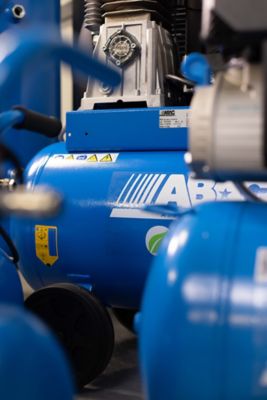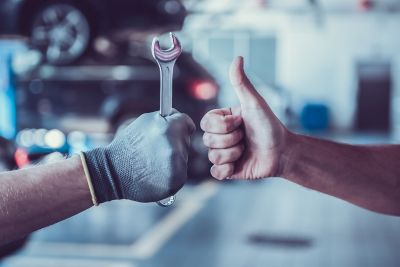It might depend on the condition of the machine and your long-term plans. While the upfront cost is appealing, make sure you’re ready for possible maintenance needs that could arise. In some cases, a new compressor with warranty and service support ends up being the better value.
When looking to upgrade or replace your compressor, the question often arises: should you invest in a brand-new machine or consider a used one? Each option comes with its own advantages, depending on your operational needs and budget at the time.
Buying a used air compressor can be a more affordable route, offering lower upfront costs. In some cases, high-quality used units can work well.
This is especially true for those checked and certified by the manufacturer or a trusted supplier. They can be a good option for businesses with tighter budgets. That said, it's important to weigh not just the price, but also the condition, efficiency, and long-term implications of the equipment.
Why Some Businesses Choose Used Compressors
Lower Initial Investment
The primary reason businesses consider used compressors is cost. A pre-owned machine typically costs less than a new one, which can free up budget for other equipment or operational needs. This can be particularly appealing for startups or small workshops making their first investment in compressed air.
Availability of Spare Parts and Support
Depending on the model, used compressors may still have many spare parts available. Some technicians might know older, established technologies better.
Considerations Before Purchasing Used
While used compressors can seem like a good deal, they’re not without challenges—especially if their condition is uncertain.
Unknown History
Without full visibility into the machine's past usage, repairs, or upgrades, it’s harder to judge its remaining lifespan. This lack of clarity can introduce risk, especially if no service record is available.
Reduced Efficiency
Older models may not match today’s energy efficiency standards. That means higher power consumption, more frequent maintenance, and a greater risk of breakdowns—factors that can increase long-term costs.
Safety and Compliance Risks
A machine that’s been heavily modified or poorly maintained can present safety concerns. It’s essential to verify that the unit has been properly inspected and certified before putting it into service.
Used vs. New: A Closer Look
Upfront vs. Long-Term Value
Used compressors typically come at a lower upfront cost, making them attractive for budget-conscious buyers or for temporary projects. Still, it’s important to factor in potential servicing or part replacements. To keep long-term costs under control, ensure that the unit has been well-maintained and assessed by a professional before purchase.
Warranty and Support
Buying new often comes with the benefit of a full manufacturer’s warranty and straightforward access to service support. A used compressor may offer less in this regard, but that doesn’t mean you’re on your own. Opt for a trusted supplier who can provide at least a limited warranty or post-sale assistance to give you peace of mind.
Efficiency and Reliability
New compressors generally offer peak performance, equipped with the latest energy-efficient technology and minimal wear. Used compressors, on the other hand, can still be reliable—especially if they come from a low-hour application or have been recently refurbished. If you're considering a used model, prioritise recent manufacturing years and ask for service records to avoid hidden efficiency losses over time.
Technology and Features
New machines usually feature the latest controls, interfaces, and monitoring capabilities. If these aren’t critical to your setup, a used unit may still fit the bill. Just make sure the compressor you’re considering aligns with your operational requirements and has the essential features you need—upgrading post-purchase isn’t always easy or cost-effective.
Your Takeaway
A used air compressor can be a good choice for some businesses. This is especially true if a trusted supplier or the original manufacturer inspects services and certifies it.
Thinking About Buying Used? Your Questions Answered
Start by checking its service history. Ask for records of any repairs, upgrades, or maintenance. Ideally, only consider units that have been inspected and certified by the manufacturer or a trusted supplier.
Yes. Availability can be limited, so you may need to wait for the right model. Older compressors may also be less energy-efficient and more prone to breakdowns, which can lead to higher running costs over time.














